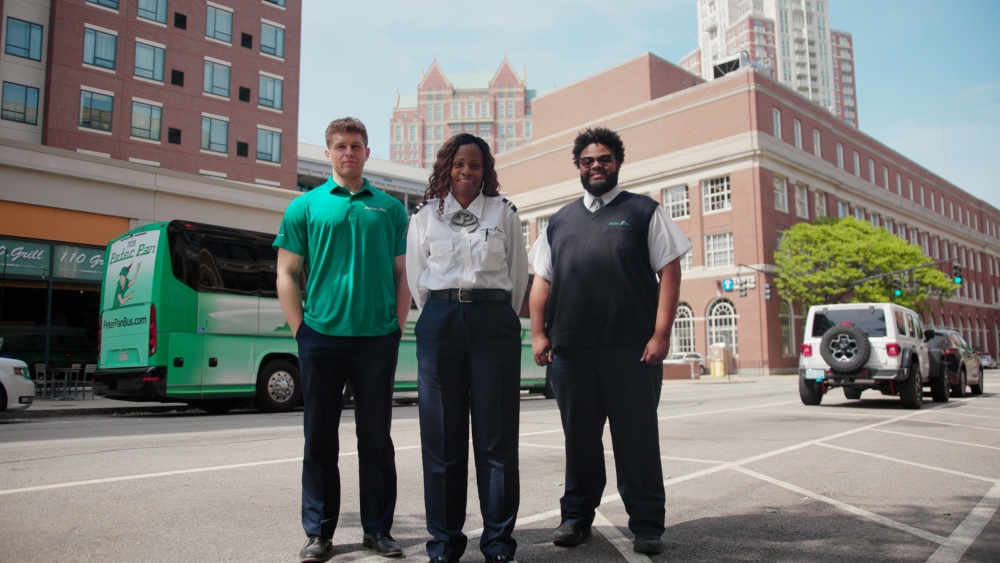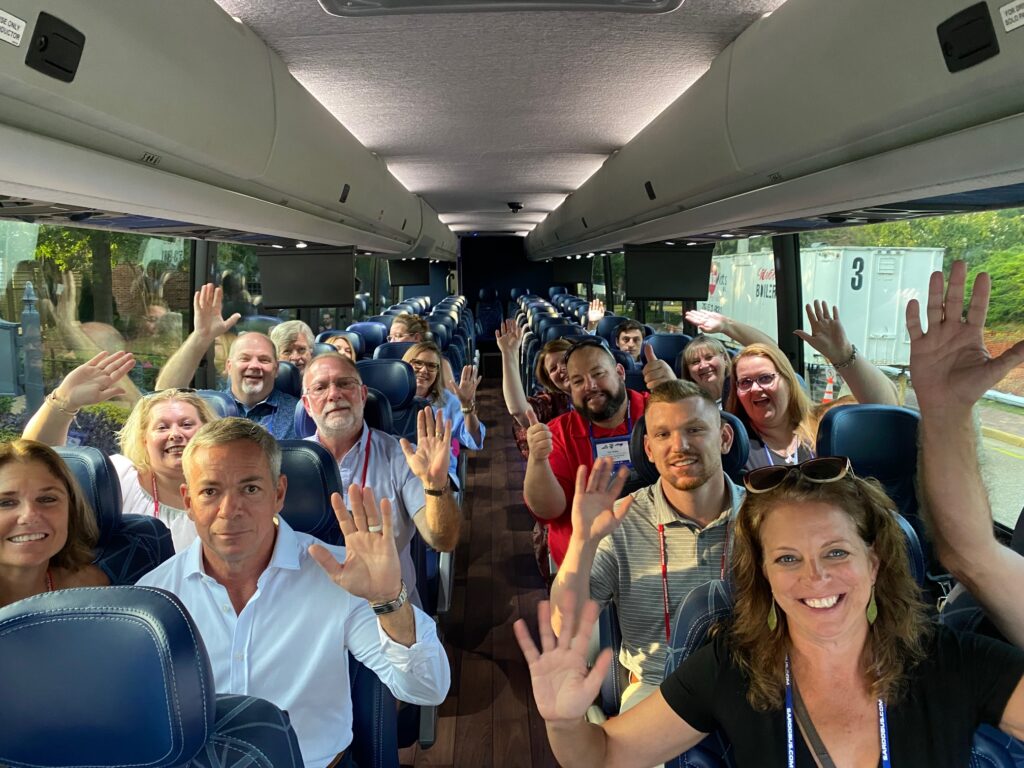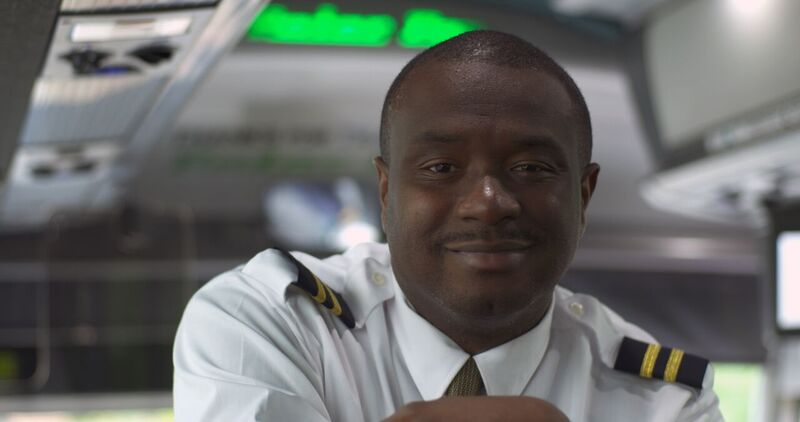
Have you ever had a service experience that didn’t go as expected?
Maybe your meal came out cold. Perhaps the hotel room was dirty, and no one responded when you called the front desk. Perhaps you paid good money for something—a haircut, a car repair, a service—and walked away feeling like the business didn’t care whether you were satisfied.
We’ve all been there. In business terms, these are referred to as service failures—moments when expectations aren’t met. Sometimes, expectations are clearly outlined in a contract or brochure. Other times, they’re implied: clean buses, professional drivers, accurate ETAs, and a company that keeps its promises.
And when those expectations fall short? Frustration sets in.
Sometimes anger. Sometimes lost trust.
In the ground transportation industry, these moments happen more than we’d like to admit. A motorcoach shows up late. A shuttle breaks down. A dispatcher miscommunicates a pickup time. A wedding party’s transportation gets delayed, or a school group ends up with the “old bus” instead of the newer one promised in the proposal.
It doesn’t take much for a customer to go from feeling confident to feeling burned. And in today’s world, those emotions don’t stay private. They appear on Google Reviews, Yelp, TripAdvisor, and various social media platforms.
Mistakes Happen. What Matters is What You Do Next.

We manage thousands of variables in transportation, including drivers, routes, traffic, weather, mechanical reliability, and human behavior. Even with strong systems and the best intentions, mistakes will happen.
That’s not what defines you.
What defines your operation is what you do next.
During my time in leadership roles across service-driven organizations, including at Disney, we understood that it’s not about never making a mistake. It’s about turning a loss into a win. When a customer has a problem, and you handle it well, you often gain more trust than if everything had gone perfectly.
Yes, you read that right.
We saw time and again that a guest who experienced an issue and then saw how quickly and professionally it was resolved left with more loyalty than a guest who had a flawless visit. When you fix a problem with urgency, empathy, and authenticity, you’re not just solving a problem—you’re showing your values.
Empower the Front Line
Too often, in transportation, the first person the customer interacts with—a driver, dispatcher, or office assistant—isn’t equipped to handle a service recovery. They might not have the authority, training, or tools.
That’s a missed opportunity.
At Disney, we empowered our frontline Cast Members to resolve issues on the spot. They were trusted and equipped with the tools to take care of the guests without needing layers of approval. If dinner service was delayed, they might offer a complimentary dessert. If a hotel room wasn’t ready, they could provide access to an attraction or a room upgrade—small gestures that turned frustration into appreciation.
What does that look like in ground transportation?
- A driver who can call in a backup vehicle before the group has to ask.
- A dispatcher who’s trained to de-escalate frustration with empathy and clear solutions.
- A sales representative who can offer a refund, gift card, or credit without waiting for upper management approval.
When your team is empowered, customers feel heard and valued. When they’re not, you force the customer to chase solutions—and that’s when damage is done.
A Simple Recovery Model
You don’t need a fancy script. You need a repeatable mindset:
- Listen carefully and calmly. Don’t interrupt. Let them express their frustration.
- Apologize sincerely. Not defensively. Not with excuses. Just acknowledge their experience.
- Take action quickly. Whether it’s dispatching a new vehicle, comping part of the trip, or calling personally to apologize, do something.
- Follow through completely. Make sure your solution happens. And confirm it with the customer.
This applies whether the failure was your fault or not. Delayed by weather? It’s still your opportunity to show you care. Mechanical failure? It’s still your moment to own the outcome.
Time is the Real Currency

In ground transportation, customers aren’t just paying for a ride—they’re paying for time.
And when that time gets wasted—sitting on a broken-down bus, waiting for a late pickup, or scrambling to fix a last-minute schedule error—you must give back some of that value.
Sometimes that means a refund.
Sometimes it means an apology letter, a gift card, or a free future ride.
Sometimes it just means doing whatever you can to salvage the remainder of the trip and restore their peace of mind.
The recovery doesn’t have to be expensive. It just has to be personal, timely, and sincere.
Surprise and Delight
One of the most effective recovery tools I’ve ever seen is what Disney called “surprise and delight.”
Even when there wasn’t a failure, Cast Members were encouraged to create small moments of magic—a sticker for a kid, a birthday greeting, a surprise snack.
In transportation, we have simple yet powerful ways to create memorable moments: offering a bottle of water, handing out snacks on a long trip, providing a blanket to someone who’s feeling chilly, or giving a group leader a shoutout over the PA. These small, thoughtful gestures cost little but can turn an ordinary trip into an experience passengers truly remember.
And when you do them after a mistake? Even more powerful.
Recovery Builds Reputation
You don’t build a reputation solely on flawless trips. You build it by how you respond when something goes wrong.
If you’re a GM, owner, or operator in this industry, you already know that challenges come with the territory. However, every delay, customer complaint, and operational hiccup is also an opportunity.
An opportunity to lead.
To teach your team.
To earn trust.
We all want to get it right the first time. But when that doesn’t happen, recovery is your second chance. And often, that’s the one that matters most.

Brian Dickson is the owner of Bus Business Consultants and author of Ground Transportation Insights on Substack. Drawing on leadership roles in motorcoach operations and Disney’s Guest Transportation, he helps operators improve performance, culture, and growth—Bus Business Consultants: Driving Performance, Culture, & Growth in Ground Transportation.
This article was originally published on July 2, 2025 at Ground Transportation Insights.


